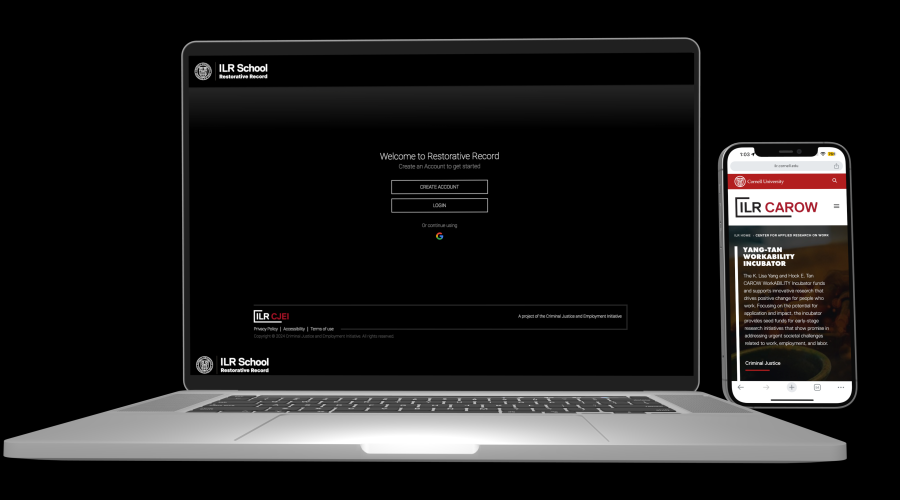
Restorative Record Enters Beta Stage For Second Chance Month
For Second Chance Month, Cornell ILR’s Criminal Justice and Employment Initiative (CJEI) launched a beta version of its Restorative Record, a digital hiring tool for justice-impacted job candidates to secure employment against exclusionary practices and stigma.
92% of private employers perform criminal background checks, often before the job begins. However, only half consider whether a candidate's criminal record is relevant to the job, and a quarter don’t verify the accuracy of the reports–alarming since up to half of criminal records contain errors, according to forthcoming research from ILR’s Center for Applied Research on Work and Cornell’s Brooks School of Public Policy.
“These dire practices are unlikely to change anytime soon,” said Jodi Anderson Jr., director of technological innovation at CJEI. “So, we turn to technology to offset this status quo.”
In its beta stage, the Restorative Record is open to justice-impacted candidates and fair-chance employers. Reentry organizations may refer clients and provide feedback on features and improvements.
The platform marks a joint effort with Gigster, a full-service software development company that combines top developers, designers and product managers with artificial intelligence.
“Gigster has been vital in helping us develop our technology at an enterprise level for this initial Cornell pilot,” said Anderson Jr.
Gigster will enable CJEI to embed the Restorative Record within preexisting hiring systems like Workday, directly integrating candidates’ chances to humanize themselves.
Only 13% of employers considered a candidate’s rehabilitative efforts: counseling, community service, mentoring experiences, micro-credentials, education and hobbies.
Encouraging applicants to show their rehabilitation efforts during the job search lets employers see people with criminal records as assets to their company and work environment rather than liabilities.
“We’ve worked with everyone from startups to Fortune 500s, and our collaboration with Cornell is undoubtedly some of the most meaningful work we’ve done at Gigster,” said Michael Kearns, CEO of Gigster. “We are proud to use our outcome-focused business model to work towards tangible change for the justice-impacted community.”
“The Restorative Record is a continuation of all the work we at CJEI have done to bring technology, equity and awareness to fair-chance hiring,” said Anderson Jr.
“Our work with Gigster and Brooks will propel the Restorative Record forward and give us policy recommendations that uplift our second-chance colleagues.”
Contact cjei@cornell.edu to get involved with the Restorative Record.
